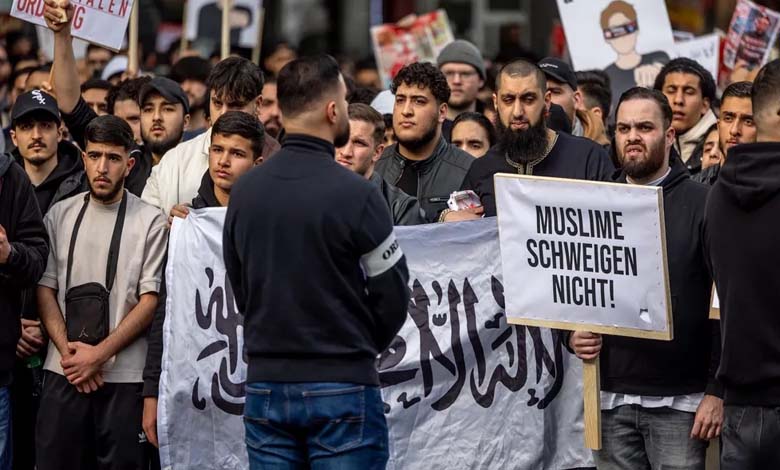Rising Western Pressure on the Muslim Brotherhood: A Shift in Policies and Approaches

Western policy has recently undergone a clear shift in dealing with the Muslim Brotherhood, which has long been a contentious issue on both security and political fronts. Western voices, especially in the United States and Europe, have moved from a climate of coexistence toward firmer stances regarding the group’s activities, accused of infiltrating Western societies through its networks of charitable and proselytizing organizations.
-
The Muslim Brotherhood in Europe and Youth: A Long Arm with 31 Branches and a Recruitment Strategy
-
The Muslim Brotherhood in Europe and Youth: An Extensive Arm with 31 Branches and a Structured Recruitment Strategy
These pressures are based on increasing assessments of the extent of influence the Muslim Brotherhood exerts within Muslim community institutions, operating through various organizations with social, religious, and cultural facades, but fundamentally linked to a global organization seeking to expand its political and economic influence.
This period has witnessed legal and administrative actions including comprehensive reviews of the status of Brotherhood-affiliated institutions such as the Council on American-Islamic Relations (CAIR) and the Islamic Society of North America (ISNA), which face investigations and requests to revoke their tax exemptions. Additionally, growing pressure is applied on other associations in the UK, Germany, and France, where restrictions or bans on their activities are being considered.
-
Action Plan in Germany: A New Path to Counter the Muslim Brotherhood
-
Egypt’s Muslim Brotherhood and the Prisons: Rumors Without Keys and Lies That Won’t Overturn Sentences
These measures come amid Western concerns over the group’s use of civil and religious frameworks as a cover to rebuild its networks and advance its agenda in Western countries, prompting governments to enhance oversight and funding controls of these institutions, even moving toward strict limitations on their activities.
Security and intelligence agencies also play a crucial role in monitoring the Brotherhood’s movements and attempting to dismantle their support networks across various countries, amid calls for increased international coordination to confront this challenge.
-
Muslim Brotherhood’s gloating over the death of al-Madkhali reveals deep doctrinal hostility… Why was he their most formidable opponent?
-
Washington Moves Against the Muslim Brotherhood: New Bill Proposes Terrorist Designation
Amid these developments, the Muslim Brotherhood faces a new phase of pressures likely to limit its ability to operate openly and force it to reconsider its strategies in the West, reflecting a new Western direction emphasizing the group’s seriousness and the necessity of comprehensive confrontation.












